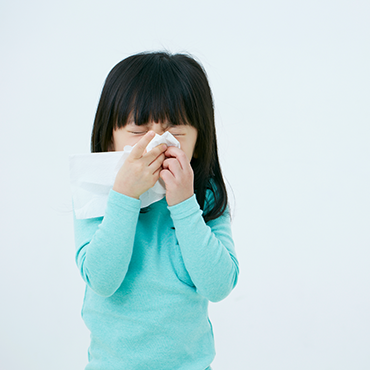
It’s cold and flu season and you may be wondering why your provider isn’t prescribing an antibiotic medication for your child. The truth is that antibiotics are only used to treat bacterial infections, not viral infections, such as the common cold. In fact, using antibiotics when they aren’t needed can cause more harm than good. Here are answers to some of the most common questions about antibiotics.
What do antibiotics treat?
Antibiotics treat bacterial infections such as skin infections, strep throat, urinary tract infections, and whooping cough. Antibiotics also treat ear infections, sinus infections, pneumonia, and bronchitis when they are caused by bacteria.
Will antibiotics help the common cold?
Antibiotics do not treat viruses such as the common cold. Colds may last up to 10 days and can be caused by several different viruses. Your child will likely experience a runny nose with a cold and nasal discharge can vary in color and consistency. Clear, green, and yellow colors of discharge are all potentially normal and do not mean your child needs antibiotics. Visit our snot spectrum guide to better understand the various colors of mucus. Only occasionally do bacterial infections follow colds, and these require a doctor's visit before prescribing medication.
What is sinusitis and when do you treat a sinus infection with antibiotics?
Sinusitis, also called a sinus infection, is caused by swelling of the sinuses. Sinusitis is most commonly a viral infection, although it can be difficult to tell when a sinus infection is caused by bacteria or a virus. Both can cause similar symptoms such as fever, congestion, headache, and facial pain. Sometimes, even allergies can cause similar symptoms. Your child’s provider may consider antibiotics for sinus infections in the following cases:
- Persistent symptoms that are not improving (nasal discharge and cough more than 10 days)
- Worsening symptoms after initial improvement of a virus
- Severe symptoms such as thick discharge at least 3 days in a row or a fever of at least 102°F
When do you treat ear infections with antibiotics and when can you wait?
Ear infections are very common either during or after viral respiratory infections. Ear infections are often caused by a virus, but occasionally they are caused by bacteria. A provider will be able to examine your child’s ears and discuss treatment options with you. If symptoms are mild, the provider may recommend watchful waiting and pain-relieving medication such as Tylenol or Ibuprofen while waiting for the infection to go away. About 80% of ear infections may improve on their own without antibiotics. We do not recommend treating with antibiotics to "prevent" an ear infection.
Do antibiotics treat sore throats?
Most sore throats are caused by a virus. If your child has a sore throat with a runny nose and a cough, a virus is likely the cause and testing for strep throat is not necessary. Strep throat is a bacterial infection that does require treatment with antibiotics and causes symptoms such as fever, throat pain, stomach pain, and a rash, usually without cough or congestion. Children under 3 rarely get strep throat unless they come in direct contact to someone with strep.
What about pneumonias?
Common colds can sometimes be followed by pneumonia. Just like ear infections, these can be viral or bacterial and your provider will help determine the best treatment options for your child.
Will antibiotics help with the flu?
Antibiotics do not treat the flu. A different kind of medication called an antiviral can treat the flu and is most effective only when taken within the first 48 hours of symptoms.
Why don't we just treat with antibiotics, just in case?
If we over-prescribe antibiotics when they aren’t needed, something called antibiotic resistance can occur. Antibiotic resistance means that the antibiotic medication that would normally be used to treat a bacterial infection may no longer work. The resistant bacteria can be spread to others, which makes it more difficult to treat a community overall, over time.
Additionally, antibiotics can cause side effects in 10% of kids, including as nausea, vomiting, diarrhea, yeast infections, rash, or allergic reactions. It's important to weigh the risks and benefits of these possibilities before starting an unnecessary medication.
Finally, they cost money!
Dr. Katherine Williams is a pediatrician in the Allegro Pediatrics Sammamish office.
Keep Reading
View All Posts
What to Know About Infant Formula
Choosing the right baby formula is important, and we’re here to help you understand the facts and keep your baby safe.

Baby's First Milestones
Watching your baby grow and change in the first year is exciting and sometimes overwhelming. Learn about key physical, social/emotional, and speech milestones to help you understand your baby’s development.

Positive Parenting Techniques
Positive parenting focuses on building a nurturing relationship to teach children important life skills like problem-solving, emotional regulation, and communication.

